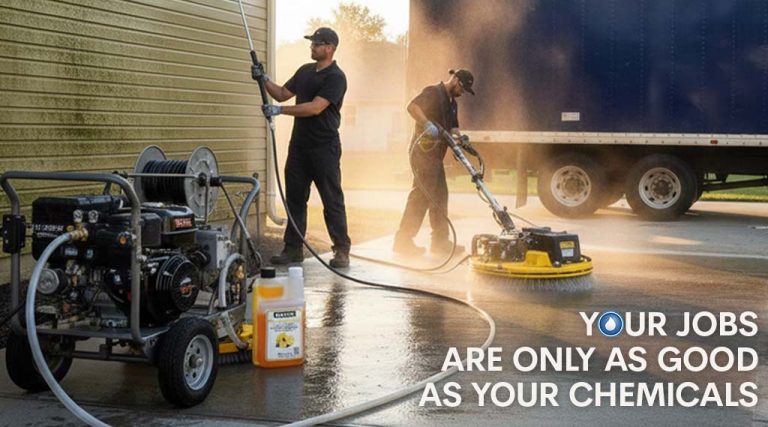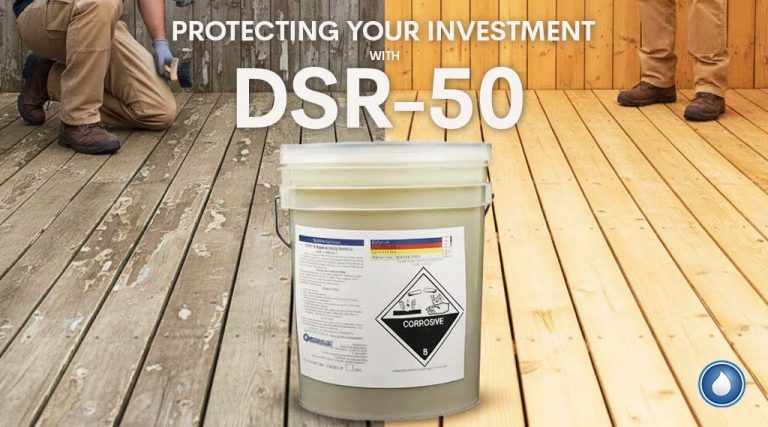The first thing to ask yourself is, “Why am I even considering the purchase of a pressure wash unit?” Is it:
A) for personal use at home?
B) do I fancy myself going into business as a professional power wash contractor?
If the answer is “a” then any residential pressure washer with a flow rate of 2 GPM (gallon per minute) will do.
If the answer is “b” then purchasing a pressure washer with a flow rate of 2 GPM unit is a waste of money. To have any chance of being competitive in today’s pressure washing environment we need a commercial grade pressure washer with >4 GPM.
Oh, wait a minute, how come we’re not talking about the pressure washer’s Pounds per Square Inch (PSI) rating? Because the wise money is spent on GPM, not PSI.
The amount of water force a pressure washer can generate at the nozzle tip is measured in Pounds per Square Inch (PSI). The higher the PSI number the greater the water force a unit can generate. And at first blush it would seem that this PSI number would tell the story on how effective this pressure washing unit is at cleaning. But hold on – this is only part of the story.
If the goal is to be a competitive wash contractor, then all of a sudden a unit’s GPM comes to the forefront. The flow rate of the water, which is measured in Gallons per Minute (GPM) is the key to working efficiently enough to be profitable. A unit’s GPM is the amount of water the pressure washer is capable of using when running and the trigger is depressed. The higher the number the more water the pressure washer will use to dislodge dirt. The combination of water and flow is what makes a pressure washer effective at cleaning.
To get the most from our money, we’ll want to look at a unit’s CU (Cleaning Units). The term ‘Cleaning Unit’ has been developed to help us understand the power of flow (GPM) and pressure (PSI) combined. Cleaning Units are a measure of power that is the results of multiplying the pressure washers’ rated PSI X GPM. An average garden hose allows water to flow at a rate of 5 – 10 GPM (gallon per minute) at a pressure of 30 – 50 PSI (pounds per square inch) would equal 5 X 30 = 150 to 10 X 50 = 500 Cleaning Units (CU). A light duty pressure washer rated at 2,000 PSI and 2 GPM would equal 4,000 Cleaning Unit (CU). A pressure washer with 2,000 PSI and 5 GPM of flow produces 10,000 cleaning units (2,000 x 5 = 10,000). Now it become clear the impact GMP has on a unit’s true worth. Use cleaning units to compare different models. The higher a unit’s CU the faster it can work. And in the pressure wash business, time is money.




